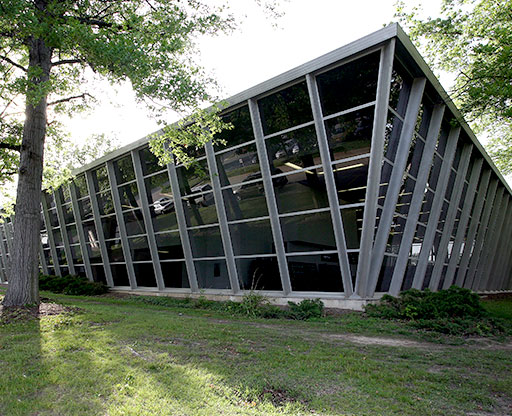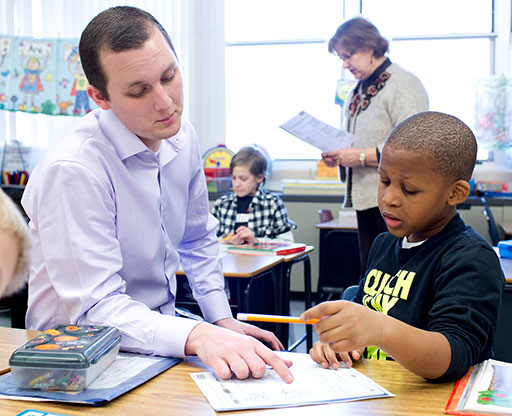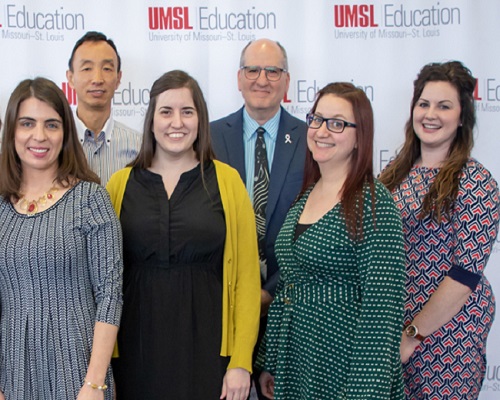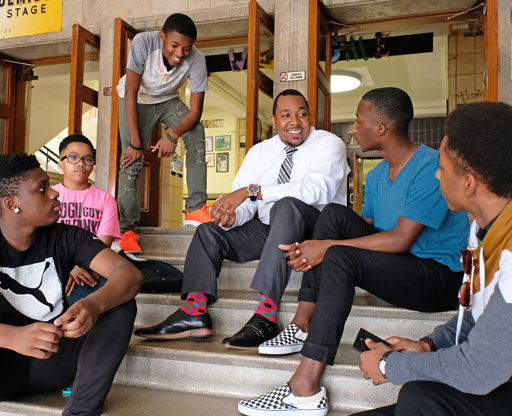Provide experiential learning in a different environment.
Museums, science centers, zoos and aquariums, parks, field stations and public gardens are a few examples of institutions that have informal education at the heart of their operations. You can help these and similar institutions in fulfilling their educational missions.
Program type:
Major, BES
Format:
On-Campus
Take the next step
Request more information below:

Bachelor of Science in Educational Studies -
Park & Museum Programs Emphasis
The BES, with an emphasis in Park and Museum Programs, prepares students to gain skills and insights that can be applied as innovative educators, program managers, activity directors and as curriculum developers in these informal learning settings. BES students in the Park and Museum Programs emphasis will be prepared for employment opportunities in organizations such as museums, science centers, children’s museums, national parks and a variety of cultural institutions. Through the BES program, students have the opportunity to earn specific credentials, as needed, and to pursue academic minors related to their individual career goals. This degree program does not lead to Missouri teacher certification.
Outcomes and Career Outlook
Upon completion of the program, graduates will be able apply a unique understanding of social justice by addressing institutional and social barriers that limit access, equity and achievement; conduct themselves in a respectful and professional manner that views failure as an opportunity to learn; apply reasoning and critical thinking while making connections among information, data and arguments to synthesize and interpret information; apply unique leadership, management and communication skills using oral, written, nonverbal and visual communication skills in a variety of formats and contexts; apply knowledge and skills to effectively manage programs; and demonstrate a unique application of best practices when teaching outside a traditional classroom setting.
Employment of museum workers are projected to grow up to 11% to 2029, with a median annual salary of $47,630, according to wage and employment data from the U.S. Bureau of Labor Statistics.
57,120
10
Career Opportunities
- Logistics Manager
- Curriculum Director
- Education Director
- Gallery Assistant
- Science Center Educator
- Park Ranger
- Program Manager
- Zoo Program Director
Plan of study
All majors must meet the general education requirements of the university in addition to completing degree-specific curriculum requirements.
Review Full Degree Requirements Download 4-Year Academic Map
Non-Missouri Residents: Prospective students are responsible for reviewing the NC-SARA state authorizations page to see if this program is offered in their state throughout their program and to review the licensure or certification requirements for the state in which they reside.
Student organizations
Make new friends and learn new skills by joining one of our Recognized Student Organizations. Here are several opportunities you may be interested in as an education major:
- EduCATE: Collegiate Association of Teachers and Educators
- OSI Leadership Education Programs / Advanced Leaders
- Student Government Association
- Students of the University of Missouri
Internship opportunities
The College of Education hosts many centers and initiatives that enhance student experiences in our programs and work with more than 36 different public, private and charter schools throughout the region. We also sponsor eight charter schools.
Honors College
The UMSL Honors College is a certificate program that can be paired with any major without adding extra classes or extending time to graduate. Classes in the Honors College are seminar-style, meaning that they are based in reading, writing, discussion, and critical thinking. This unique class format fosters an intellectual climate centered around democracy, diversity, civility and academic excellence.
Undergraduate research
We encourage and support students as they engage in exciting activities in and outside of the classroom that enrich their academic and professional understanding of their chosen area of study. All majors are encouraged to participate in Undergraduate Research and Scholarship to produce discipline-specific intellectual or creative innovations to their field.








